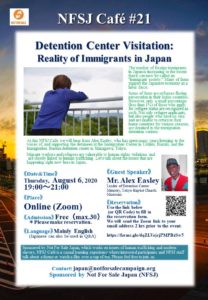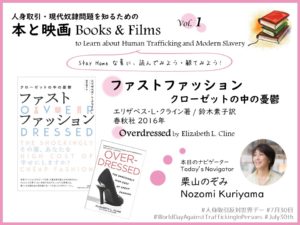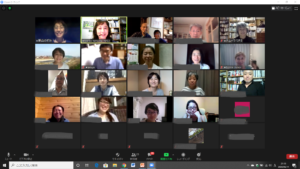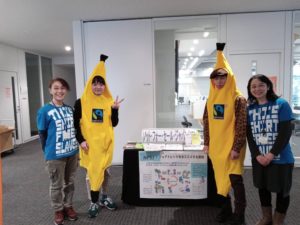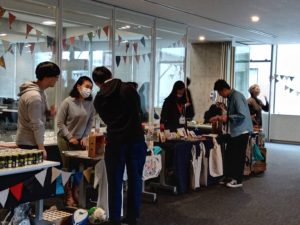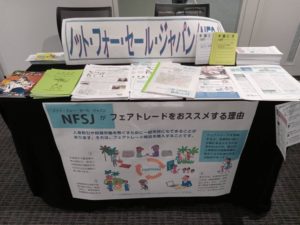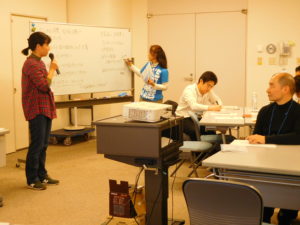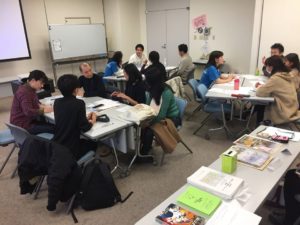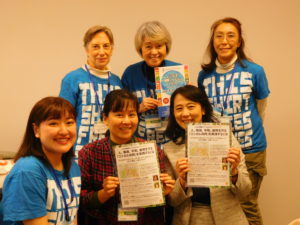NFSJ Café #21 “Detention Center Visitation: Reality of Immigrants in Japan”
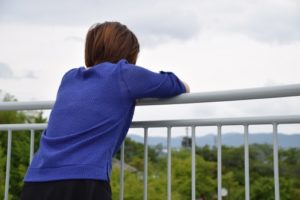
The number of foreign immigrants in Japan is increasing to the extent that it can now be called an “immigrant society.” Many of them support the Japanese economy as a labor force.
Some of them are refugees fleeing persecution in their home countries. However, only a small percentage (less than 1%) of those who apply for refugee status are recognized as such. Not only refugee applicants, but also people who have no visa and are unable to return to their home countries for various reasons, are detained in the immigration detention centers.
At this NFSJ Cafe, we will hear from Alex Easley, who has spent many years listening to the voices of, and supporting the detainees at the Immigration Center in Ushiku, Ibaraki, and the Immigration Bureau detention center in Shinagawa, Tokyo.
Migrant workers and refugees are vulnerable to human rights violations and are closely linked to human trafficking. Let’s talk about the issues that are happening right now here in Japan.
《Date&Time》Thursday, August 6, 2020 19:00~21:00
《Place》Online (Zoom)
《Admission》 Free(max.30) *Please make reservation.
《Language》 Mainly English (Japanese can also be used in Q&A)
《Guest Speaker》Mr. Alex Easley
Leader of Detention Center Ministry, Tokyo Baptist Church.
Musician.
《Reservation》
Use the link below to fill in the reservation form.
We will send the Zoom link to your email address 2 hrs prior to the event.
https://forms.gle/dqZLVejrjPMPBzSw5
Sponsored by Not For Sale Japan, which works on issues of human trafficking and modern slavery, NFSJ Café is a casual learning experience where interested participants and NFSJ staff talk about a theme or watch a film over a cup of tea. Please feel free to join us.
Contact: japan@notforsalecampaign.org
Sponsored by Not For Sale Japan (NFSJ)
Flyer download ⇒20200806 NFSJ Cafe No.21 Flyer (E)
